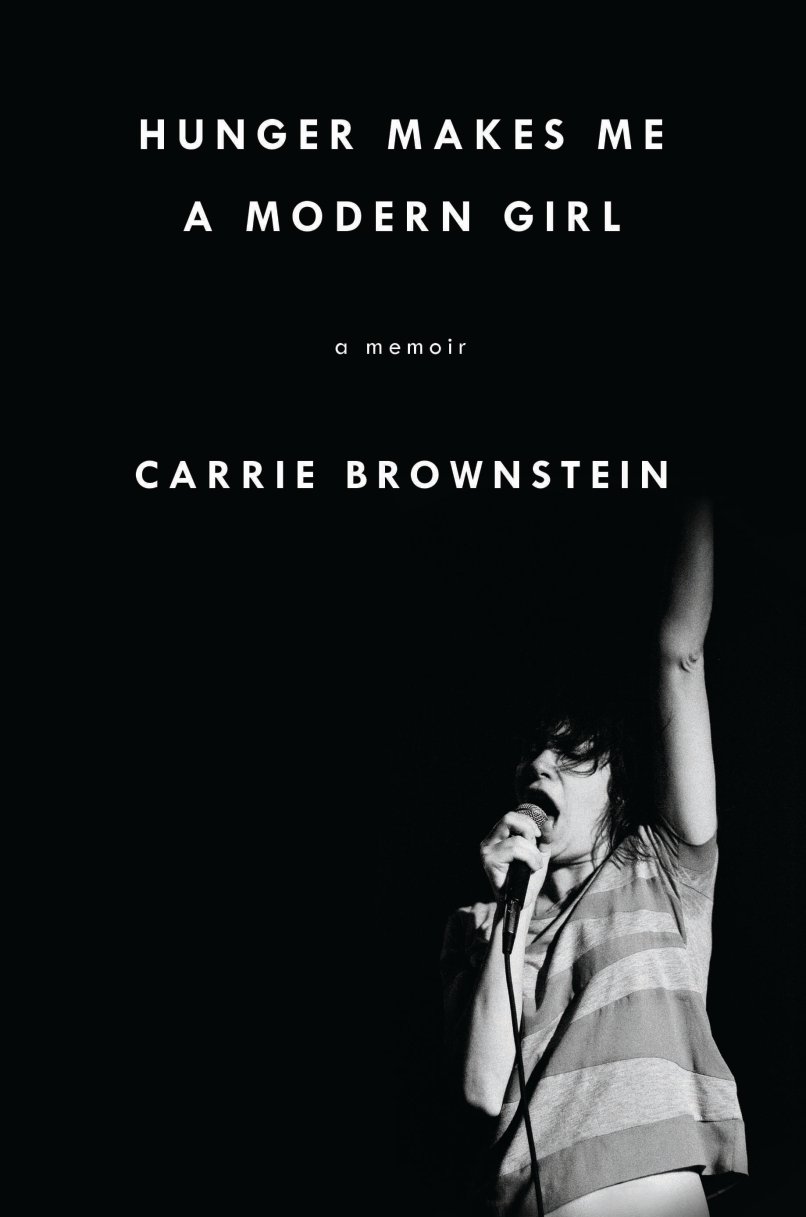The best music memoirs operate as more than simply extended liner notes for nerdy completists — they also reveal the deeper emotional struggles driving artists from the margins to the mainstream. These transcendent narratives intimately map the psyches of cultural trailblazers such as Patti Smith, with the revealing M Train and Just Kids, or Sonic Youth’s Kim Gordon, who chronicled her rise from experimental artist to festival headliner in this year’s excellent memoir, Girl in a Band. Now Carrie Brownstein enters the world of fearless rock memoirists with her beautifully written literary debut, Hunger Makes Me a Modern Girl.
Brownstein possesses an enviable array of talents. She’s the co-frontwoman of the acclaimed Northwest rock trio Sleater-Kinney, whose ardent feminist anthems propelled the group from its Olympia roots to an international stage. She’s also the co-creator/co-star of the Emmy-nominated series Portlandia, the IFC comedy steeped in hipster satire, and has a recurring role on the Amazon series Transparent. She’s become a cultural critic as well over the past decade, sharpening her elegant prose as a columnist for NPR. But the recurring theme in Brownstein’s memoir isn’t her many accomplishments; it’s the more interesting story of an anguished misfit battling to constantly calibrate her place in the world.

Brownstein’s struggle for visibility began at home in the suburbs of Seattle, where her parents’ personal crises subsumed their daughter’s needs. Take, for example, this passage on her mother, a woman she describes as becoming increasingly absorbed by anorexia:
She was retreating from the world, a slow-motion magic trick. Meanwhile I was getting louder, angrier, wilder. I experimented with early forms of my own amplification — of self, of voice, of fury — while my mother’s volume was turned down lower and lower.
And then there’s her father, a man about whom she knew very little, despite growing up with him. He disappeared into a closeted life, awkwardly coming out to his daughter very in his 50s in a scene she describes as “typical, like he was just a sidekick in his own life, a shadow.”
Part One of Hunger sets the groundwork that Brownstein needed constant validation from new audiences. She’s occasionally self-mocking when she writes of her grabs for attention, but humor doesn’t drive her storytelling as much as self-awareness. The blunt, reflective tone is fitting for a book that doesn’t encompass Brownstein’s years as a comedic actress (or even her work with the band Wild Flag). Hunger is a chronological memoir bookended by the implosion of Sleater-Kinney, with a short epilogue on the subsequent reformation of the band in more recent years. In Part Two, Brownstein gives the detailed explanations fans would expect about the stories behind the group’s songs, tours, romantic tensions, and recording sessions. But even these memories serve to underscore the underlying needing to be heard when you exist on the fringes of your family and your music scene.

It’s a fitting format for a book about a band that was passionately pushing up against societal constraints, and whose members were acutely aware of where they stood in the ’90s, especially against the reigning “slacker rock” performed by men like Beck, Rivers Cuomo of Weezer, and Stephen Malkmus of Pavement. Brownstein has a particularly poignant passage on this topic after calling out this trio of rock gods.


